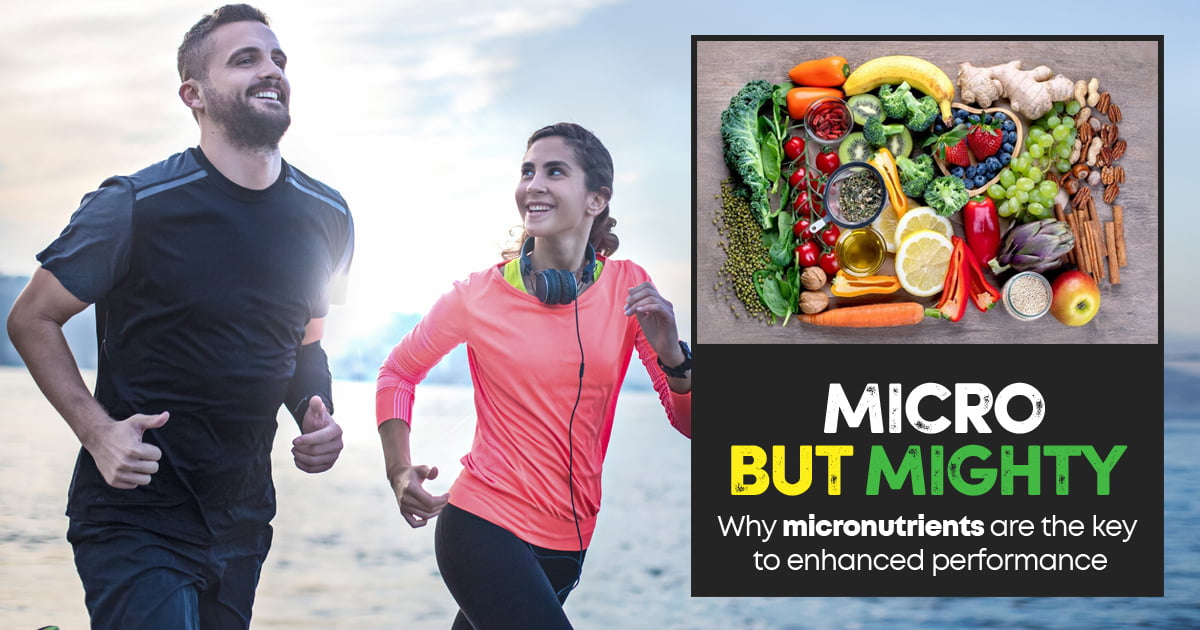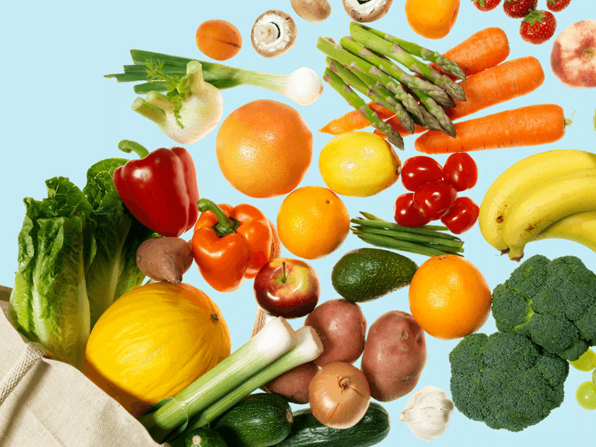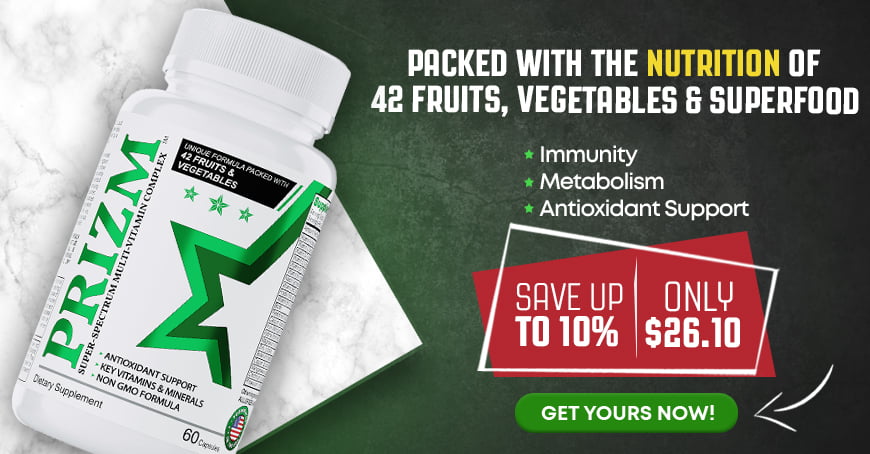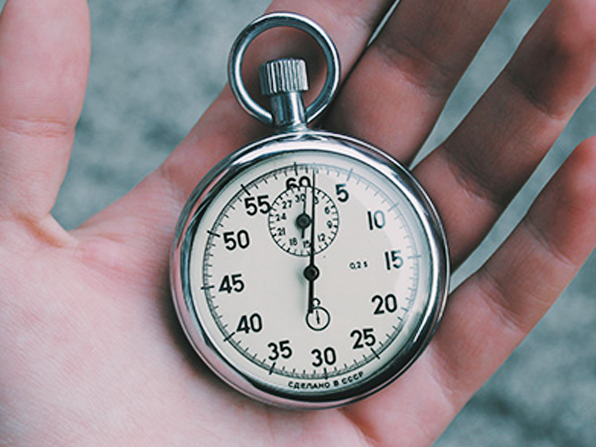
Why micronutrients are the key to enhanced performance
When it comes to achieving big gains in your athletic performance or overall health, it’s time to think small.
There's a lot of talk about macronutrients when we talk about enhanced performance, but micronutrients are just as essential and shouldn't be overlooked. These not-so-little wonders play a critical role in muscle recovery, reducing injury, combating illness, and more.[1]
Continue reading to learn about some of the most critical micronutrients you should increase in your diet to optimize your performance, health, and overall well-being.
Vitamin D
Vitamin D has been getting a lot of good press these days in light of the COVID pandemic, and with good reason. Even in non-pandemic times, increasing your Vitamin D intake is a best practice in boosting immunity, as well as athletic performance.
Vitamin D plays a critical role in overall muscle function. Research suggests that athletes taking Vitamin D may enjoy reduced joint pain, increased muscle growth, improved strength, and elevated performance.[2]
There are several ways to improve your Vitamin D levels, including increasing your time in the sun and your meat intake. Fortified foods like orange juice, plant milks, and cereals are also good sources.
Vitamin E
No one enjoys respiratory infections. And if you’re trying to stick to a workout regimen, getting knocked down from such an infection can be frustrating. For those working out regularly, respiratory infections can occur more frequently due to decreased immune functioning immediately following a workout.[3]
The good news is that increasing your Vitamin E intake can help protect your immune system and fight many illnesses, including respiratory infections.[4] Evidence also suggests Vitamin E helps as a natural stress reliever and can enhance aerobic performance.[5]
Peanut butter, sunflower seeds, and almonds are just a few foods you can add to your diet to improve your Vitamin E intake.
Vitamin B12
Looking to improve muscle repair and boost your energy? Then adding more B12 into your diet is essential to meeting your goals.
A Vitamin B12 deficiency can have several adverse side effects, including fatigue, anemia, and decreased athletic performance.
By consuming a wide variety of fish and meats, as well as eggs and milk, you can reap the muscle repairing and energy-boosting benefits of B12.
Iron
Whether you're pumping iron, increasing your cardio, or just looking for improved body function, upping your iron intake is crucial. Iron plays a critical role in ensuring your muscles remain oxygenated to maximize your energy levels. Not enough iron in your system can lead to muscle soreness and overall feelings of fatigue.
You can boost your iron intake by consuming meat, as well as fortified breakfast cereals, tofu, and kidney beans. To maximize your iron levels, pairing these with foods rich in Vitamin C is also a great strategy.
A Holistic Approach to Maximizing Your Micronutrients
While the nutrients mentioned above are just a few of the micronutrients you should consider consuming more of, there are still many more that can help your body and mind function at their peak.
It can be challenging to get all the micronutrients you need through diet alone. Whether you find it difficult to eat a wide variety of foods to maximize your nutrients or you are a vegetarian or vegan and face challenges in achieving optimal nutrition, adding a quality multivitamin into your diet can be a great solution to ensure your body is appropriately fueled.
PRIZM by BELDT Labs supports performance, metabolism, and immunity with nutrients from 42 different fruits, vegetables and superfoods. Whether you are a professional athlete, looking to drop some pounds with a new exercise routine, or simply seeking to improve your overall health, The premium formulation in PRIZM fuels your body with the right type of nutrients to help you look, feel, and perform at your best.
[1] Kreider, R.B., Wilborn, C.D., Taylor, L. et al. (2010). ISSN exercise & sport nutrition review: research & recommendations. J Int Soc Sports Nutr 7(7). https://doi.org/10.1186/1550-2783-7-7
[2] Shuler, F. D., Wingate, M. K., Moore, G. H., & Giangarra, C. (2012). Sports health benefits of vitamin d. Sports health, 4(6), 496–501. https://doi.org/10.1177/1941738112461621
[3] Kakanis, M. W., Peake, J., Brenu, E. W., Simmonds, M., Gray, B., Hooper, S. L., & Marshall-Gradisnik, S. M. (2010). The open window of susceptibility to infection after acute exercise in healthy young male elite athletes. Exercise immunology review, 16, 119–137.
[4] Takanami, Y., Iwane, H., Kawai, Y., & Shimomitsu, T. (2000). Vitamin E supplementation and endurance exercise: are there benefits?. Sports medicine (Auckland, N.Z.), 29(2), 73–83. https://doi.org/10.2165/00007256-200029020-00001
[5] Jessup, J. V., Horne, C., Yarandi, H., & Quindry, J. (2003). The effects of endurance exercise and vitamin E on oxidative stress in the elderly. Biological research for nursing, 5(1), 47–55. https://doi.org/10.1177/1099800403005001005




